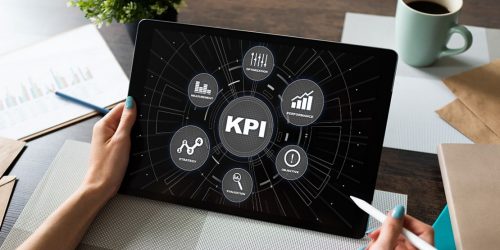How is Digitalisation Reinventing the Purchasing Function? Part 3
Part 3: New Skills
This report is divided into three main parts and aims to analyse the impact of digital transformation on procurement and to see how the profession will have to reinvent itself. The first part discussed the digitalisation of purchasing and the second part highlighted the transformation of the purchasing function in the service of customer satisfaction. Now let’s take a look at how buyers will have to learn to work with computers and what skills they will have to cultivate.

This third section on the new skills required of the purchasing professional is organised into two parts:
- Skills related to the digitalisation of purchasing
- Essential interpersonal skills
Skills related to the digitalisation of purchasing
New technologies will improve the profession of buyers, just as much as they will reshape the profession. Consequently, the procurement professional will have to develop new skills, at the frontier between know-how and interpersonal skills, to enable them to fully embrace the digitalisation of purchasing.
Mastering digital tools
Because buyers will soon be relying on new technologies (Artificial Intelligence, Big Data, blockchain, etc.) on a daily basis, they will have to fully master them. They will have to train continuously to understand the new tools being used in their profession. This know-how is also one of the most critical skills for purchasing teams and their management, according to the “Deloitte 2021 Chief Procurement Officer Survey”.
Improve your critical thinking
It is indisputable: computers are a formidable tool for improving performance. They can perform operations much faster than humans, without making mistakes, working 24 hours a day, 7 days a week, 365 days a year. However, they remain incapable of critical thinking and lack the sensitivity and creativity required to invent new concepts. By combining the processing power of computers with their own critical thinking, buyers will be able to analyse, process, and leverage this data to collaborate more effectively with, and influence, stakeholders.
Develop your computational thinking
Far from being restricted to computer scientists, computational thinking is a global approach that allows us to gain a better understanding of how computers work and interact with them more effectively. In other words, buyers will have to learn how to talk to computers. Using practical methods, they will learn how to formulate and solve problems using algorithms and computing devices. For example, they will have the ability to divide a problem into several parts that the technology is capable of solving sequentially.
Essential interpersonal skills
Although technical skills still remain the priority in terms of investment for purchasing adapters, the importance of interpersonal skills will grow to become an essential component of the profession. It is true that in our constantly changing environment, technical knowledge can rapidly become outdated, unlike personal qualities. Buyers will have to rely on their emotional and relational intelligence to strengthen their five “soft skills”.
Building relationships
Interacting and building relationships of trust with stakeholders is a purely human skill and, in fact, is the least amenable to automation. Developing your emotional and social intelligence will be necessary to better understand the people you deal with, and to learn how to position yourself and adapt to different situations. Human relations will be the backdrop to the buyer’s profession, helping to develop other important skills.
Collaboration
This skill is essential because purchasing departments work across all the company’s departments and with multiple suppliers. To work effectively as a team, the buyer of the future will have to combine several qualities: communication skills, listening skills, adaptability, etc. If internal customer satisfaction becomes a real priority within purchasing departments, this concept will become more important. As far as partners are concerned, the democratisation of open innovation and the co-development of solutions will reinforce the importance of this knowledge.
Influence
The ability to influence people is essential for buyers to achieve their objectives and to convince all the parties involved of the relevance of their strategies. This requires developing your leadership skills and being transparent, humble and, above all, by adjusting your language to suit your audience.
Creativity
The buyer of the future will have to adopt a fresh, curious, and innovative approach to meet the challenges ahead of them, especially as one of their objectives will then be to focus on innovation. It will be essential to develop your inventiveness and imagination while mastering certain methods and creative processes (ideation, design thinking, mind mapping, etc.).
Adaptability
In the era of the digital revolution, everything changes very quickly: tools, business practices, requirements, regulations, etc. The buyer of the future will not only have to accept change and be agile enough to adapt but, above all, will have to be part of that change. This means that they will have to adopt an active, rather than a passive, posture and become personally involved, expressing openness and curiosity.
Technical know-how and interpersonal skills will converge with relational and IT skills to become the cornerstones of the purchasing profession of tomorrow. On the strength of a successful digitalisation, procurement will become a key player in corporate strategy, using new methods to support the business in its growth and transformation.
To find out how to integrate CSR into the heart of your company’s purchasing policy, download our white paper.
For more information please visit: www.manutan.co.uk/future-of-work






